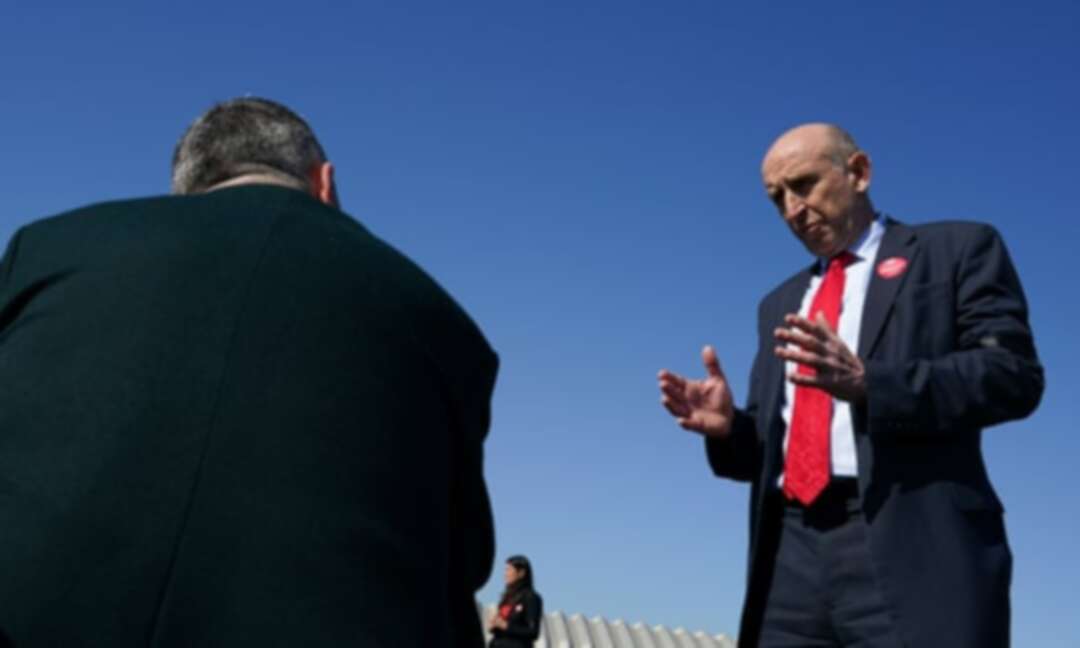-
Labour will never govern unless it can appeal again to working class – report

Exclusive: publication by Labour MPs in once safe seats warns party’s problems predate Corbyn’s leadership and Brexit
Labour will never get back into government unless it can reinvent itself to appeal again to working-class voters, a major examination of the party’s future has warned, saying the problems go far beyond Brexit or Jeremy Corbyn’s time as leader.
The conclusion comes in a collection of pieces written by Labour MPs representing once safe seats which are now at risk, among them several shadow ministers, including John Healey, the shadow defence minister, who edited the report.
While it is not an official Labour publication, the inclusion of a series of frontbenchers in the Fabian Society report means it can be seen as reflecting priorities under Keir Starmer.
The publication stresses that the task for Labour goes beyond winning back so-called red wall towns lost to the Conservatives in 2019, and that the party must find a way to appeal to working-class voters across the UK while not alienating other groups, for example those in big cities.
Healey argues for a focus on what he calls the “real middle” – people who earn around the median British wage of just under £25,000 – saying these should be Labour’s “core constituency”.
The report features a series of subject-specific essays by Labour MPs from the party’s “new marginals”, including shadow home secretary Nick Thomas-Symonds on crime, Dan Jarvis on patriotism, Tracy Brabin writing about creating closer communities, and Yvette Cooper on a Labour alternative to Boris Johnson’s “levelling up”.
“Colleagues who simply see this as purely a product of Jeremy Corbyn’s period of leadership, just about the red wall seats and 2019, or traditional industrial towns, or just the north, are missing the fact that there’s a long-term trend and it’s country-wide,” said Healey, who was a shadow minister throughout Corbyn’s time in charge.
Healey pointed to the fact that Labour lost 87 seats to the Conservatives in the 2010 election, and eight more in 2015. Of these, 83 areas went on to support Brexit in the 2016 referendum. Brexit was, he said, “both an effect of this dislocation and a cause of further disillusion”.
The report highlights the need for a shift more in vision for the party, rather than a response based on specific policies, for example on patriotism, an area already highlighted by Starmer. Other areas include an examination of perceptions about fairness, and how people can feel secure and fulfilled in their work.
Polling which took place before the 2019 election showed that voters often liked Labour’s economic policies until they found out they were proposed by Labour, Healey said: “That tells you the damage, and therefore the task, lies in the sentiment, in the view of who we are, what we stand for, and what we offer the country.”
Healey said: “We can’t duck the really difficult conversations about things like tax, and race and culture divides. If you don’t have a bigger vision, then others will fill that vacuum.”
He added: “We need to avoid being limited to the politics of compassion. There is a core that will always have Labour on the side of those who are most vulnerable and most disadvantaged, but also opportunity, fairness and ambition have to be a big part of what Labour stands for.”
Some within Labour have argued that regaining the voters lost since 2010 while not alienating existing supporters has become increasingly difficult in a more atomised political culture, and that the party should ally with other parties, and comprehensively embrace proportional representation.
Healey called this “a prospectus of surrender”, saying: “If Labour as a political party can’t win confidence and support across the breadth of the country, and is simply going to build on its city base, then we don’t deserve to lead the country.”
source: Peter Walker
Levant
You May Also Like
Popular Posts
Caricature
Syrians' concerns now
- December 10, 2024
Syrians' concerns now #Syria
#Bashar_al-Assad
#Liberation_of_Syria
#Syrians
#Future_of_Syria
#Levant_News

opinion
Report
ads
Newsletter
Subscribe to our mailing list to get the new updates!




















